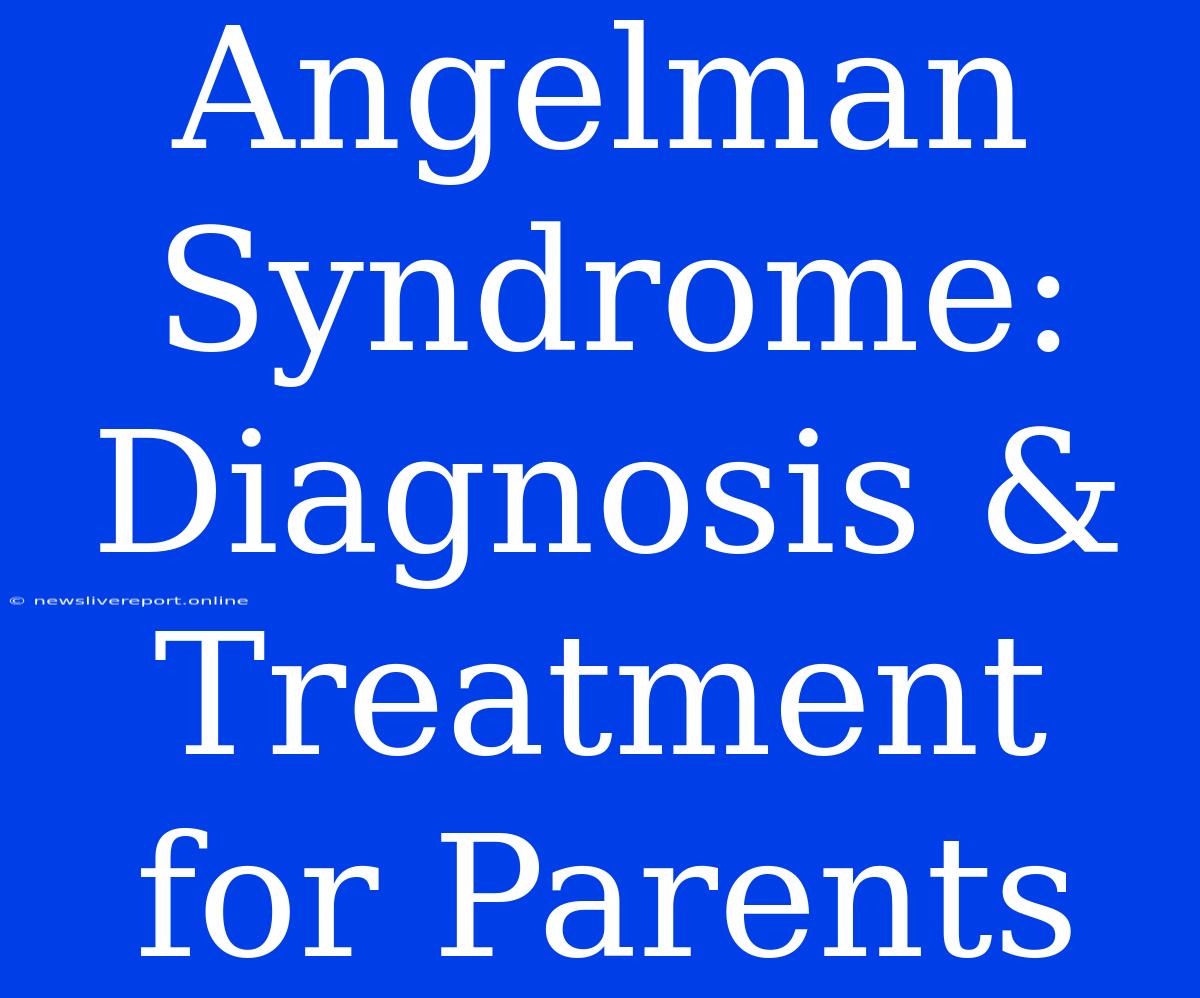Angelman Syndrome: Diagnosis & Treatment for Parents
Angelman Syndrome is a rare genetic disorder that affects the nervous system, causing developmental delays, intellectual disabilities, and physical challenges. While there is no cure for Angelman Syndrome, early diagnosis and intervention can significantly improve quality of life for affected individuals. This article will provide a comprehensive overview of the diagnosis and treatment options for Angelman Syndrome, specifically geared towards parents.
Understanding Angelman Syndrome:
Angelman Syndrome is caused by a deletion or mutation in the UBE3A gene located on chromosome 15. This gene is responsible for producing a protein crucial for the development and function of the nervous system. The syndrome affects approximately 1 in 12,000 to 20,000 individuals worldwide.
Symptoms of Angelman Syndrome:
Recognizing the symptoms of Angelman Syndrome is crucial for timely diagnosis and intervention. Here are some common signs to watch for:
- Developmental delays: Significant delays in reaching developmental milestones like sitting, crawling, and walking.
- Intellectual disability: Difficulty with cognitive skills like learning, memory, and communication.
- Characteristic facial features: A wide mouth, protruding tongue, and a large, happy smile.
- Movement and balance issues: Clumsiness, poor coordination, and an unsteady gait.
- Speech and language difficulties: Limited or absent speech, a high-pitched voice, and difficulty expressing thoughts.
- Happy disposition: A cheerful, happy demeanor with frequent laughter and smiling.
- Sleep disturbances: Difficulty sleeping and frequent nighttime awakenings.
- Seizures: Occurring in around 80% of individuals with Angelman Syndrome.
Diagnosis of Angelman Syndrome:
1. Clinical Evaluation: A medical professional will conduct a physical examination, review medical history, and observe for any developmental delays or characteristic behaviors.
2. Genetic Testing: This is the most definitive way to diagnose Angelman Syndrome. It can involve a blood test to analyze DNA for deletions or mutations in the UBE3A gene.
3. Brain Imaging: Techniques like MRI or EEG can help rule out other conditions and confirm the diagnosis.
Treatment Options for Angelman Syndrome:
While there is no cure for Angelman Syndrome, early intervention and ongoing support can significantly improve quality of life.
- Early Intervention Programs: Therapies like physical, occupational, and speech therapy can help address developmental delays and improve motor skills, communication, and self-care abilities.
- Education and Learning Support: Specialized education programs can help children with Angelman Syndrome learn and thrive.
- Seizure Management: Medications can effectively control seizures in many individuals with the syndrome.
- Behavioral Management: Strategies for managing challenging behaviors and promoting positive social interaction are essential.
- Emotional and Psychological Support: Counseling and support groups can provide emotional support for individuals and families coping with the challenges of Angelman Syndrome.
Resources for Parents:
- The Angelman Syndrome Foundation (ASF): Offers support, resources, and advocacy for families affected by Angelman Syndrome.
- The National Institute of Neurological Disorders and Stroke (NINDS): Provides comprehensive information about Angelman Syndrome and other neurological disorders.
Conclusion:
Early diagnosis and intervention are vital for individuals with Angelman Syndrome. By understanding the symptoms, seeking professional evaluation, and accessing appropriate treatment options, parents can provide their child with the best possible quality of life. With proper care, individuals with Angelman Syndrome can lead fulfilling lives and achieve their full potential.

